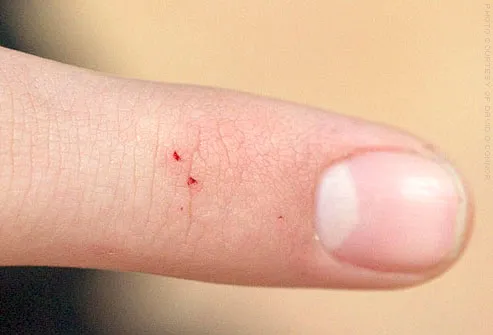1 Answer
Aside from scaring us just by being around, here's what a BW Bite can do:
The black widow spider produces a protein venom that affects the victim's nervous system. Some people are slightly affected by the venom, but others may have a severe response. The first symptom is acute pain at the site of the bite though there may only be a minimal local reaction.
The local pain may be followed by localized or generalized severe muscle cramps, abdominal pain, weakness, and tremor. In severe cases, nausea, vomiting, faintness, dizziness, chest pain, and respiratory difficulties may follow.
The severity of the reaction can depend on the age and physical condition of the person bitten. Children and the elderly are more seriously affected than young adults
Another article I found with my Google Search says:
Black widows have fangs, almost like miniature snakes. Soon after a black widow spider bite -- before any reaction starts -- you may be able to see two small holes like those in this image. Black widow venom can cause muscle spasms and heart disturbances, but doesn't usually cause the infected sores that are blamed on brown recluse spiders.
Black widow spider bites are rarely fatal. The most common symptoms after a bite (besides the pain of the bite itself) are:
Abdominal pain
Muscle cramps/soreness
Soreness and redness around the bite
Irritability/agitation
High blood pressure is also common from black widow spider bites, although it rarely causes any problems for the patient. Most of the symptoms are treated individually. An antivenin (spider poison antidote) is available for black widow spider venom, but it's not really necessary for most victims.
Here's the photo referenced:

| 12 years ago. Rating: 1 | |

 annalee???
annalee???
 Bob/PKB
Bob/PKB




